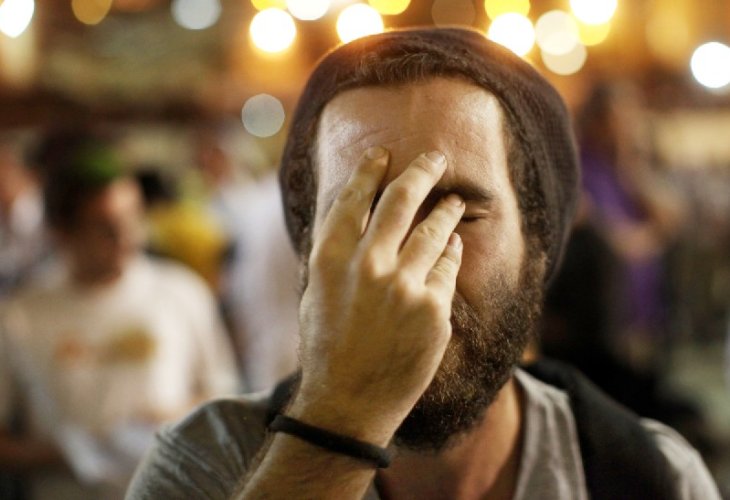Jewish Law
Shema Yisrael: The Meaning, Power, and Faith Behind Judaism’s Central Declaration
How the Shema unites belief, love of God, and the eternal spirit of Israel across generations

The Shema is recited twice daily — once during the Shacharit (morning) prayer and once during Arvit (evening) prayer. It is also recited at special moments: when the Ark is opened and the Torah is taken out on Shabbat and festivals, at a brit milah (circumcision), and at the closing service (Ne’ilah) of Yom Kippur — the holiest day of the year.
The Shema consists of three scriptural sections. The first section, Shema Yisrael (Devarim 6:4–9), contains ten commandments or core ideas expressed in six verses:
1. “Hear, O Israel, the Lord is our God” – the commandment to know and recognize that there is a Creator who governs the world and especially the destiny of Israel.
2. “The Lord is One”– the obligation to believe in God’s absolute unity; He is One and there is no other power beside Him.
3. “You shall love the Lord your God” – the commandment to love God, even to the point of giving one’s life for the sanctification of His Name.
4. “You shall teach them diligently to your children”– the mitzvah of education: the duty to teach one’s child Torah and guide him to fulfill the commandments.
5. “And you shall speak of them when you sit in your house and when you walk on the way” – the obligation to study Torah at all times and in every place.
6. “When you lie down”– the mitzvah to recite the Shema in the evening.
7. “And when you rise up” – the mitzvah to recite the Shema in the morning.
8. “You shall bind them as a sign upon your arm” – the commandment of the tefillin shel yad (arm phylactery).
9. “And they shall be as frontlets between your eyes” – the commandment of the tefillin shel rosh (head phylactery).
10. “And you shall write them upon the doorposts of your house and upon your gates” – the mitzvah of affixing mezuzot to one’s doorposts.
The second section begins with “Vehaya im shamoa tishme’u el mitzvotai” (Devarim 11:13–21) and speaks about accepting the yoke of the commandments. It introduces the principle of reward and punishment — that the blessings of nature and prosperity depend on Israel’s faithfulness to God’s commandments.
The third section (Bamidbar 15:37–41) recalls the Exodus from Egypt and includes the mitzvah of tzitzit (fringes on garments), which serves as a reminder of all 613 commandments.
Covering the Eyes and Holding the Tzitzit
To block distractions and maintain concentration.
Closed eyes symbolize blindness — and in Torah thought, a blind person is considered “as one who is dead.” Thus, closing one’s eyes during “Shema Yisrael” expresses a symbolic readiness to give one’s life for the sanctification of God’s Name.
During the Shema, it is customary to hold the tzitzit (fringes) between the third and fourth fingers of the left hand, place them over the heart, and keep them there until the words “and place His Torah and His word upon your heart.” The tzitzit are then kissed.
According to Kabbalistic teaching, the Divine Name is hinted at within the threads and knots of the tzitzit.
Spiritual and Physical Healing
The Torah is a source of life and healing — and the Shema, which encapsulates the essence of faith and observance, is said to have 248 words, corresponding to the 248 limbs of the human body.
When a person recites the Shema properly, each limb receives healing through one of its words. However, the three paragraphs of the Shema actually contain only 245 words, so the chazzan (prayer leader) repeats the phrase “Hashem Elokeichem emet” — “The Lord your God is true” — adding three words to complete the number 248.
The Talmud (Pesachim 56a) recounts that before the death of Yaakov (Jacob) our forefather, he wished to reveal the “end of days” to his sons, but the Divine Presence departed from him. Fearing that one of his sons was unworthy, like Yishmael or Eisav, he asked them about their faith. They responded together: “Shema Yisrael — Hear, O Israel (our father Yaakov) — the Lord our God, the Lord is One.” In that moment Yaakov replied: “Blessed be the name of His glorious kingdom forever and ever.”
Preparation and Intention
Before reciting the Shema, one should imagine addressing all of Israel, saying:
Shema Yisrael!” — “Listen, Israel, hear what I have to say.” “The Lord is our God” — the Eternal, Master of all, who was, is, and will be, is our God. “The Lord is One” — He alone is the true and only divinity.
Anyone who does not at least focus on the meaning of this first verse and the phrase “Blessed be the name of His glorious kingdom forever and ever” has not fulfilled the mitzvah of reciting the Shema.
A Declaration of Faith
Throughout history, Jews have recited “Shema Yisrael” with their final breath in moments of persecution and martyrdom. By doing so, they proclaimed their absolute faith that life continues beyond this world, and that God — who transcends time and space, remains with them even in death.
The Shema thus also serves as a declaration to the nations and to all who rise against Israel: their victories are temporary, but Israel’s spirit is eternal. Ultimately, truth and justice will prevail; the world moves toward redemption. Though the journey is long and at times unbearably difficult, the Jewish people remain steadfast in faith — confident that the good and final end awaits in the future.

